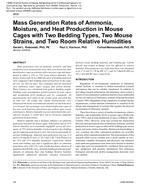Click here to purchase
Windows and their dynamic performance have a huge impact on building energy demand and peak loads. To model windows in dynamic building simulation, several methods are available. Simplified methods take standard input parameters like overall U-value and SHGC into account, which are available from manufacturers. More detailed models account for the convective, radiative and conductive processes in windowpanes and air/gas gaps and can represent various dynamic phenomena but require more comprehensive inputs. Detailed windows models which can compute the performance of new, innovative window technologies utilizing air spaces in windows to preheat/cool air and control direction of flow are currently missing for dynamic hygrothermal building simulation models. This paper describes the creation of a new, comprehensive dynamic window model and its integration into a dynamic hygrothermal building simulation software. The new model includes options to simulate controlled and pressure difference driven airflow in gaps between windowpanes with release of the air towards either side of the window. Dynamic changes of heat flow due to short- and longwave absorption and exchange, changes in surface transfer resistances depending on air velocities and conduction with different gas fillings are considered. Partial or full shading due to shading elements inside, outside or in between windowpanes contributes to dynamic heat flow numbers.
Citation: Thermal Buildings XIV 2019
Product Details
- Published:
- 2019
- Number of Pages:
- 9
- Units of Measure:
- Dual
- File Size:
- 1 file , 1.3 MB
- Product Code(s):
- D-Bldgs19-040


